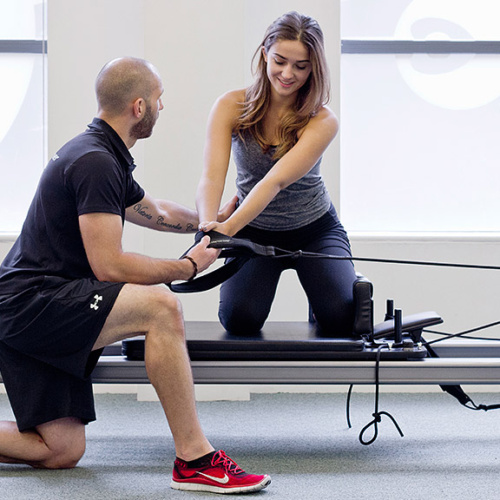As Trainers, we’re often asked about sweating. Common questions include how much a person should sweat during exercise, whether it’s good or bad to sweat, and whether sweating freely is a mark of being fit or unfit?
All valid questions. And when we look at how our body operates it boils down to a series of individual answers.
So let’s start with what sweating is, and why we do it.
Sweat is primarily water but also contains minerals, urea, lactic acid, ammonia and sugar. It is used by our thermoregulatory system – our internal thermostat – to regulate and maintain a constant body temperature.
When the body senses a rise in temperature it will call on two big mechanisms to cool it down.
The first is vasodilation – sending the capillaries closer to the skin to cool it down (why skin reddens when we get hot).
The second is to produce sweat, which then evaporates, causing an endothermic reaction, drawing heat away from the skin.
A side benefit is that whilst regulating the body temperature, the process of sweating also causes the pores to open and can help flush away any dirt or impurities.
That’s the ‘what’ and ‘why’ covered. Two more common questions are whether sweating is a sign of fitness – or lack of it – and whether it will help us lose weight?
The answer to the first question is that the amount we sweat is generally determined by our genetics (as well as some local factors; including temperature, humidity and intensity of effort). But as we get fitter our bodies will generally respond to temperature change more rapidly and start sweating sooner. Body size and composition may also have an effect; the more lean muscle mass we have, the higher our metabolic rate and the faster we heat up during exercise.
The answer to the second question is yes. And no. In that order.
Yes, you may weigh less after a good sweaty workout than you did before – depending on how well you stayed hydrated during your workout.
And no, because all that weight loss will be water, and will rapidly be replaced by food and fluid consumed post exercise.
More to the point, it’s not a weight-loss method that’s to be recommended, even temporarily. Keeping hydrated is essential when exercising; studies have reported that being as little as 2% dehydrated can significantly reduce performance.
(If you want to know how much fluid you should consume during a workout, try this simple sweat loss equation: weigh yourself before exercising, then immediately after the workout towel yourself down and change into similar clothing to re-weigh yourself. Subtract post workout weight from pre workout weight, and for every Kilogramme lost you should aim to consume a litre of fluid.)
So in conclusion, there’s nothing wrong with sweating, especially during exercise, but it is important to remain hydrated and replace the fluids we lose either during or as soon as possible after exercise.
Sweat is a perfectly natural and important function of our bodies, so don’t be self-conscious or worried about it. (In fact, if you attend one of my Cardiolates classes feel free to marvel at the impressive volume of sweat I’ll be producing myself!)





